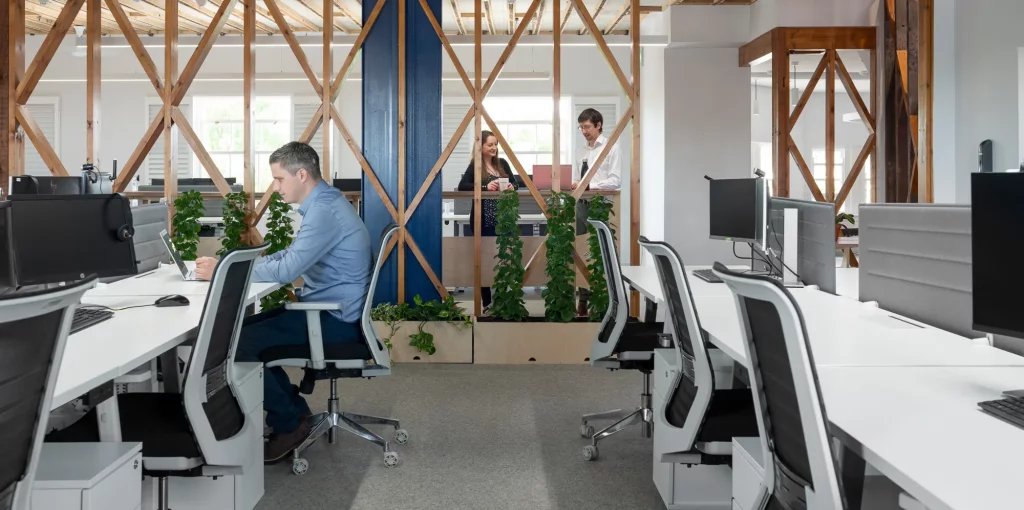In today’s hyper-connected work environment, it’s easy to underestimate the power of silence. We’re surrounded by a constant barrage of notifications, meetings, chit-chat, and the hum of electronics. While some of this noise is an inevitable byproduct of our modern age, there’s a strong argument for cultivating more moments of quiet at work. Silence isn’t just a respite for our ears; it has profound implications for productivity, creativity, and overall well-being. Let’s dive into the benefits of embracing silence in the workplace and some strategies for achieving it.
The Science Behind Silence and Productivity
Contrary to the bustling hubbub often associated with busy offices, studies have shown that a quieter environment can significantly boost productivity. When employees aren’t constantly interrupted by background noise, they can focus more intently on the task at hand.
One ergonomics researcher conducted experiments showing that varying noise levels directly affect how well people can concentrate. Notably, when exposed to constant, ambient noise, participants experienced reduced cognitive performance. Their ability to process information, remember details, and even their reading comprehension declined.
The takeaway? To boost productivity, organizations might consider investing in noise-canceling solutions or designating certain areas of the office as “quiet zones.”
Foster Creativity Through Quiet Moments
You’re likely familiar with the saying, “It’s so quiet, you could hear a pin drop.” This proverbial silence is more than just a poetic expression; it’s a catalyst for creativity. The mind requires periods of rest, free from distractions, to make unique connections and come up with innovative solutions.
Some of the most groundbreaking ideas emerge not during meetings or brainstorming sessions but during moments of solitude and reflection. While it’s unrealistic to expect eureka types of moments daily, creating a quieter workplace can certainly facilitate conditions where creativity flourishes. Soundproofed rooms and cubicles dedicated to silent reflection can make all the difference to reduce noise in office spaces as well.
Enhance Employee Well-Being and Reduce Stress
It’s no secret that constant noise can be a significant stressor. From the distant chatter of colleagues to the never-ending pings of incoming emails, these interruptions can elevate stress levels, even if we don’t consciously recognize it.
Prolonged exposure to noise has been linked to increased levels of cortisol, the body’s primary stress hormone. Elevated cortisol levels, especially over extended periods, can lead to various health issues, from sleep disturbances to more serious cardiovascular problems.
Creating a quieter workplace isn’t just about improving output; it’s a vital aspect of employee well-being. By actively reducing noise levels and promoting silent intervals, employers can foster an environment where team members feel more at ease, leading to both improved mental health and increased job satisfaction.
Communication: Quality Over Quantity
In a world where being busy seems synonymous with success, there’s a tendency to equate constant communication with effectiveness. However, it’s vital to distinguish between productive dialogue and needless chatter.
Reevaluating our communication habits can lead to more meaningful interactions and less unnecessary noise. Instead of constant email threads or immediate message alerts, consider scheduled check-ins, or using tools that categorize message urgency. By promoting mindful communication, we can reduce the cacophony of digital interactions while increasing the clarity and purpose of our exchanges.
Soundproof and Design Solutions for a Quieter Workspace
While cultivating a culture of silence and introspection is essential, the physical attributes of the workplace play a vital role in noise levels. Simple changes, like incorporating sound-absorbing materials into office design or introducing plants that act as natural sound barriers, can drastically reduce ambient noise.
For businesses that can invest more, consider creating soundproofed rooms for tasks requiring deep concentration or meetings that often become loud. Another option? Provide employees with high-quality noise-canceling headphones, allowing them to find their bubble of silence even in the busiest environments.
Encourage Silent Retreats and Mindful Breaks
Incorporating moments of silence into the daily routine doesn’t mean merely reducing background noise. Encouraging employees to take ‘silent breaks’—short periods without talking or digital interaction—can rejuvenate the mind. These breaks can range from a five-minute meditation session to longer, scheduled retreats away from the workspace.
Such practices not only reduce noise pollution but also help in centering thoughts, improving mental clarity, and fostering a more mindful approach to work. Over time, these silent intervals can lead to a refreshed, more focused team ready to tackle challenges with renewed vigor.

